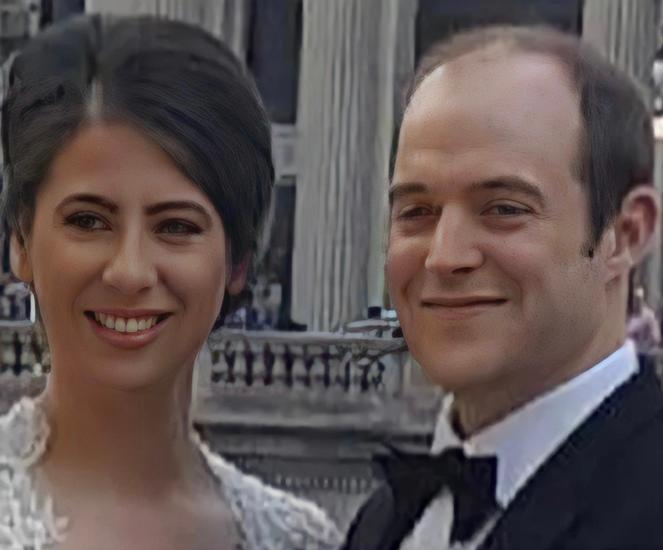George Michelsen Foy
By George Michelsen Foy
Ireland has been a low key but important thread in my writing life and not only because I still rely on Guinness and Jameson's to unwind.
The first time I went, very young, maybe 5 or 6, with my mum; not sure why she went. We ended up in a strange hotel in the countryside outside Dublin. It was cold. I remember riding in a horse-drawn carriage and the driver, pointing at a fence separating the road from the dark woods around, told me the fence was there to protect us from wolves. Talk about blarney. I was terrified of wolves then, and it made a deep impression (though of course my mother argued there had not been wolves in Ireland for centuries, if ever). The landlady, one of the Ascendancy (my mum told me later), also scared me: she accused us, angrily, unfairly, of breaking a marble mantelpiece. Odd, eh? Odd that I should even remember. It was overall a dark voyage and there are bits and bobs of that experience in some of my books. I put the wolf story in a novel--transplanted to France, but that same scene.
Our family had only a ha'porth of Celtic blood but my mum loved Ireland. Brought us back to stay a couple of times. Twice we stayed in Bargy Castle for a couple of weeks at a shot. We had breakfast where the 1798 rebellion was plotted. There was a priest hole between my brother's room and mine, and a hole under the floor where Republicans hid gelignite in 1916, and a room that remained walled up, supposedly, because victims of the Plague were walled up there, still alive, to contain the infection and the bacillus can live for centuries. More blarney, probably, but a good tale (there's a theme happening here). Here, too, the owner was a former British army officer and a Protestant; it was just as the Troubles were starting up north but there didn't seem to be much animosity in Wexford. My mother liked to ride and we all rode around County Wexford. Later, when she was in her 70s, my mother rode with the Galway Blazers, and my brother with her. Don't ask me how that all happened. This makes my family sound dreadfully posh but we weren't really. The old lady was good at riding and good at making friends.
The last time I was in Ireland I took my own family. My daughter was 1 and a half. We stayed with friends who owned a number of pubs in Dublin including the famous multi-storied Bruxelles. Lovely people and hospitable. Sharon was a friend of my wife's from childhood and her son, Robin, was Emilie's age. They lived in a lovely Georgian house on Leeson Street and we spent a fantastic two weeks in Dublin. Of course the Guinness flowed like the Liffey, which was when I found out that you could actually survive on a diet of stout with the occasional black pudding breakfast, though this was not the best overall course in terms of physical health. We were there for Bloomsday, which was an event but not yet the touristic craziness I hear it's become recently. I'm getting to the meat of the Irish influence here. Bear with me. I think “Dubliners” and “Ulysses” are two of the most important books in the English language, or maybe the Irish-English language, which seems to me slightly distinct from Brit English let alone American. I had been pretty much the only one to celebrate Bloomsday at my university when I did a masters in the US so when I heard about Bloomsday rituals June 16 in the city of “Ulysses” I was off like a shot. Started off in the Martello tower. Drank in the nearby pub. Went skinny-dipping in the Forty Foot to the consternation of a nearby matron; I cut myself on barnacles Foot climbing up the ladder and used my knickers to wipe the blood. Met up with my wife and daughter and we followed perhaps half of the stations of the “Ulysses” cross and got pissed of course but everyone was having a wonderful time and declaiming “Ulysses” on various street corners and it was a fine day overall. When it was over I hung my knickers to dry over the Aga in Sharon and Chris's kitchen; they were planning to rent the house for the summer, and Aidan Quinn the actor was looking to rent it. Sharon showed him around the house and ended up in the kitchen, where his eyes immediately strayed to a pair of bloody knickers hanging over the stove. For some reason he rented the house anyway.
By the time we returned to the States I had bad pneumonia that took me 10 days to get rid of: Liz had a stomach bug and our daughter was throwing up the whole flight and had a fever of 104 F when we got off the plane. We all survived, obviously. But I don't recommend two weeks on Guinness and black pudding only.
Here's the important bit. What with reading Joyce, Yeats, Beckett and Banville; with listening to Irish music, starting with the Dubliners when I was in my teens and going on to Christy Moore and the Pogues; I feel as if Irish-English has soaked into how I write and use the language. Good writing--I'm not going to do the false modesty bit here, I may not be Joyce or Beckett but I think I'm a decent enough writer to be able to talk about this--good writing has as much to do with music as it does with story-telling and Irish English is musical to its core. I can't quantify it but I can hear it in the music and literature, it has to do with the lilt and dynamics of the sentence, an Irish sentence, of the kind I'm talking about, goes up and down and lasts long enough to be a short ballad with refrain and pause, and often encompasses a bittersweet ending, major and minor chords. It also includes a strange mix of humor, plaint and gentleness in how a story gets told. I'll include this sentence of Beckett's as an example:
“All I had to do was lower my head and look to the ground, under my feet, in front of myself, because it's from that posture that I've always drawn the strength to, how to put this, I'm not sure, it's from the ground rather than from the sky, though the sky always gets better press, that help has come in times of trial.”
I love Beckett for his language and also for his humor. His world is dark, his characters despairing, and yet they are funny as hell in the most basic way humor works, in the sense that it brings together elements of the world that simply don't go together, and wonders innocently at the juxtaposition, revealing in turn the surprising inventiveness of a world that so often makes no sense at all. That world kills his people, yet somehow they still revel in it. I caught sight of Beckett when I was in my first year of university, in Paris; he used to sit in a corner of the upstairs tea room at WH Smith's bookshop on Rue de Rivoli, a gaunt figure in a raincoat having a quiet cuppa. I didn't know his work then. These days I am translating a novella of his, “The Calmative,” from the French in which it was originally written into English. Beckett translated the novel himself, and you might wonder why I bother. The answer is manifold: partly because I like Beckett and this is one way of engaging more deeply with his work, which translation forces you to do; partly because I grew up bilingual in French and English and write in both languages and want to see how somebody else manages it; mostly because I want to try to understand, by comparing Beckett's translation and mine, how his creative mind worked. I do a fair amount of translation work and the problem of making one culture accessible to another is a complex one. One aspect of “The Calmative” that has struck me forcefully in the translation is how easily the lyrical Irish side of his language carries over into French, and vice versa: the multiple dependent clauses, the back and forth, can often be translated as they stand within a sentence, unlike more standard texts in which the English is much more linear and direct than the French. I can see why he lived in France, wrote in French, worked in the French Resistance during the war. One of the more typical French expressions is "Oui, non"--"Yes, no," a phrase that often introduces contradictory positions typical of French thought and philosophy. It strikes me that this is often the case with Beckett's language and characters as well: "I can't go on, I'll go on."
But you don't want a treatise on Beckett.
George Michelsen Foy, who was born on Cape Cod, Mass., is the author most recently of “Run the Storm: A Savage Hurricane, a Brave Crew, and the Wreck of the SS El Faro,” about the incident in 2015, as well as “Finding North: How Navigation Makes Us Human,” “Zero Decibels: The Quest for Absolute Silence” and 12 novels. A former officer on British coastal freighters and the holder of a U.S. Coast Guard coastal captain’s license, he teaches creative writing at New York University. He divides his time between Cape Cod and New York.









